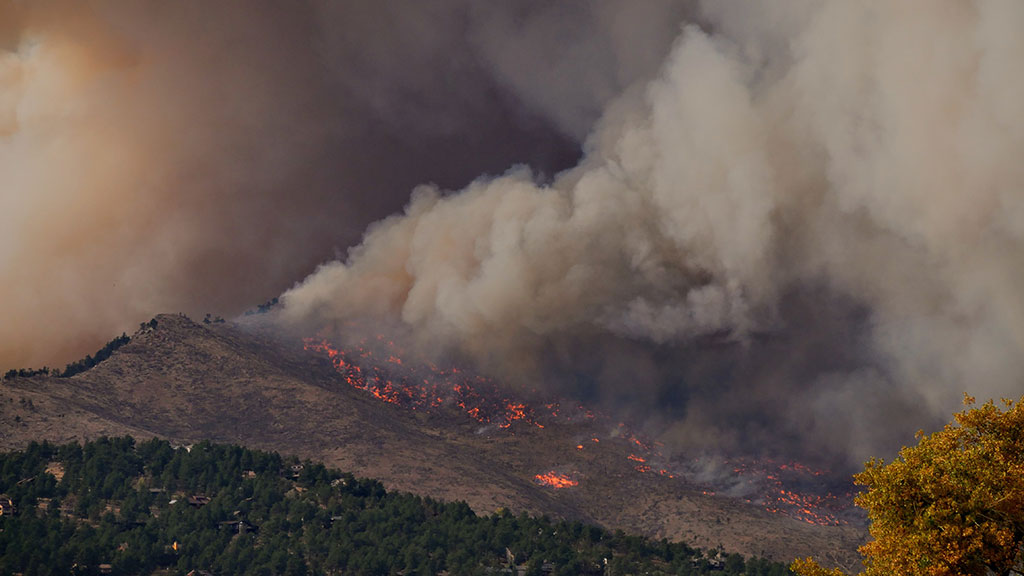European project to educate secondary school students in wildfire prevention
The initiative, which forms part of the Erasmus+ programme, also aims to foster community engagement to boost its impact
A European initiative will raise awareness in secondary schools of the challenges of climate change and the need to reduce the risk of wildfires. The project, EduFire Toolkit, is being led by the Pau Costa Foundation (Spain), in collaboration with the Universitat Oberta de Catalunya (Spain), the Universidade de Lisboa (Portugal) and Leitrim County Council (Ireland), and it forms part of the EU's Erasmus+ programme for education, training, youth and sport.
EduFire aims to educate secondary school students (aged between 12 and 16) about preventing wildfires using a project-based learning methodology and a transdisciplinary STEAM (Science, Technology, Engineering, Arts and Mathematics) approach. The project will provide guidelines and pedagogical resources developed by all the partners in the initiative, aimed at including wildfires as a subject on the school curriculum. According to Miriam Arenas, a researcher in the UOC's CareNet group who is participating in the project, this challenge was identified in a previous European project (CUIDAR) which the group participated in a few years ago.
The project will provide a Toolkit with educational resources to foster the young students' curiosity and interest in everything related to wildfires. The idea is that they will identify and understand the real local challenges related to the risk of wildfires, and the links to climate change. The activities will also be designed to encourage community engagement to boost the impact of the initiative.
A project that turns the educational community into a co-creator
In EduFire, students and teachers from the three participating countries will be guided by the project team and become the co-creators of a set of educational tools focused on community participation. The latter is a key factor in increasing society's awareness of and engagement with wildfires, and will be the area in which the UOC team, which includes another researcher from the CareNet group Israel Rodríguez-Giralt, will make its major contributions, given the group's experience in other ongoing projects focusing on community participation in wildfire management, including WUICOM or PyroLife.
The tools developed by EduFire will be tested in various schools in each participating country (Spain, Ireland and Portugal), taking into account the different characteristics and challenges related to wildfires in each country. After they have been tested and improved, they are expected to be used in numerous European schools. Training activities and multiplier events aimed at both the educational and the academic community will also be organized during the project to share the results with a wider audience.
The idea behind the project, which has a Twitter account, is to provide tools and knowledge to make young people and their communities better prepared for present and future wildfires. The toolkit will include two educational guides (one for teachers and one for students) on wildfires, which cover project-based learning, STEAM and community engagement. The toolkit will be added to throughout the project with materials and products created by students from the three different countries. All this material will be made openly available.
Another aim is to inspire and train the citizens so that they understand and become aware of the many uncertainties surrounding the wildfires that will take place in the coming decades. This is a pressing global challenge, and the team behind the project hopes that it will act as a catalyst for the creation of a network of people and schools wishing to join. Individuals or schools interested in receiving information about the project and the various alternatives for participating in it are invited to contact the team through any of the channels listed on the project's website.
This research promotes Sustainable Development Goals (SDG) 4, Quality Education; 13, Climate Action, and 15, Life on Land.
UOC R&I
The UOC's research and innovation (R&I) is helping overcome pressing challenges faced by global societies in the 21st century, by studying interactions between technology and human & social sciences with a specific focus on the network society, e-learning and e-health.
The UOC's research is conducted by over 500 researchers and 51 research groups distributed between the university's seven faculties, the E-learning Research programme, and two research centres: the Internet Interdisciplinary Institute (IN3) and the eHealth Center (eHC).
The University also cultivates online learning innovations at its eLearning Innovation Center (eLinC), as well as UOC community entrepreneurship and knowledge transfer via the Hubbik platform.
The United Nations' 2030 Agenda for Sustainable Development and open knowledge serve as strategic pillars for the UOC's teaching, research and innovation. More information: research.uoc.edu #UOC25years
Experts UOC
-
-
Israel Rodríguez Giralt
Lecturer in the Psychology and Education Sciences Department
Press contact
-
Editorial department


